At PMV, we believe that by specifically targeting each mutant p53 we can fundamentally disrupt the course of cancer. Our research and development efforts are dedicated to selectively targeting mutant p53, providing unique therapies for any patient whose tumor harbors these gene mutations.
PMV Pharma was founded in 2013 by David Mack, Ph.D., Arnold Levine, Ph.D. and Thomas Shenk, Ph.D. Over the past ten years, we have built a precision oncology platform that leverages more than four decades of research experience and unique insights into the p53 protein. We have assembled a management team of biopharmaceutical experts with extensive experience in oncology drug discovery and development.
Management
David H. Mack, Ph.D.
Co-Founder, President & CEO
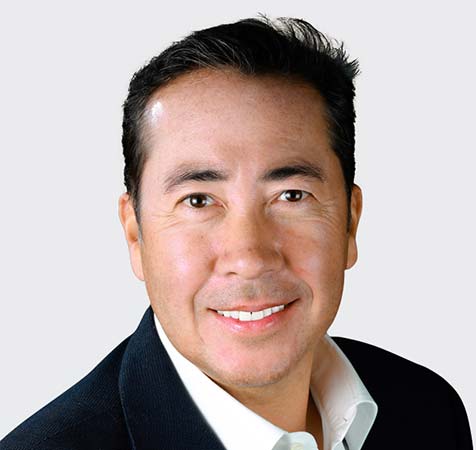
Prior to co-founding PMV Pharma with biologists Arnold Levine and Thomas Shenk, Dr. Mack was a general partner at Alta Partners from 2002 to 2013. His first investment was Angiosyn (acquired by Pfizer in 2005) where he was a director and CEO. Prior to Alta, Dr. Mack co-founded and served as Vice President of Genomics Research at Eos Biotechnology (acquired by Protein Design Labs in 2003).
From 1994 to 1997, he served at Affymetrix as Head of Cancer Biology where he oversaw the development and application of DNA array technology in the areas of oncology and inflammation. Dr. Mack was also a pivotal member of the Polymerase Chain Reaction (PCR) Invention Group at Cetus (now Novartis) in the mid 1980s. Dr. Mack has co-authored more than 30 scientific articles and reviews, including papers published in Cell, Science, and Nature, and is an inventor on 26 issued US patents. Dr. Mack was an American Cancer Society Postdoctoral Fellow in Microbiology and Immunology at Stanford University School of Medicine. He received his Ph.D. from the University of Chicago, where he was a Howard Hughes Fellow in Molecular Genetics and Cell Biology, and he received a B.A. in Molecular Biology from the University of California, Berkeley.
Dr. Mack has served on the Board of Directors of numerous biotechnology companies including Angiosyn, Aerie Pharmaceuticals (NASDAQ: AERI), Ceregene, Proacta Therapeutics, aTyr Pharmaceuticals (NASDAQ:LIFE), Pathwork Diagnostics, Silence Therapeutics (LON:SLN), Aduro Biotech (NASDAQ:ADRO), and Sutro Biopharma (NASDAQ:STRO). He currently serves on the Polsky Center Council for Entrepreneurship and Innovation, University of Chicago.
Deepika Jalota, Pharm.D.
Chief Development Officer

Dr. Jalota has over 25 years of experience in the life sciences industry with a focus in oncology. Since joining PMV Pharma in 2019, Dr. Jalota has taken on progressively greater responsibilities and now serves as the Chief Development Officer. Prior to joining PMV Pharma, Dr. Jalota was Vice President, Head of Global Regulatory Strategy, Oncology I at Bayer HealthCare Pharmaceuticals where she was responsible for overseeing the development of global regulatory strategies for several early and late stage oncology projects, including Xofigo®, VITRAKVI® and Nubeqa®. From 2014-2016 at Bayer, she was responsible for overseeing the development of global regulatory strategies in Ophthalmology and Dermatology, including Eylea®.
Prior to working at Bayer for 12 years, Dr. Jalota was employed with Sanofi-Aventis, Forest Laboratories and Procter and Gamble Pharmaceuticals within various roles across drug development.
Dr. Jalota received her Pharm.D. from University of Florida, College of Pharmacy, and her B.S. in Pharmacy from Rutgers University, Ernest Mario School of Pharmacy.
Michael Carulli
Chief Financial Officer

Prior to joining PMV Pharma, Mr. Carulli was an Executive Director of R&D Financial Planning and Analysis at Celgene (now Bristol Myers Squibb) where he oversaw the financial and operational plans for the entire Research and Development organization. Over 10 years at Celgene he held multiple positions with increasing responsibility working closely on the R&D strategy, long range planning, and financial partnering to the Business Development and Alliance Management team. Mr. Carulli was the Chief of Staff to the President of Research & Early Development for 2 years, as well as the R&D finance lead for the Bristol Myers Squibb integration and Otezla divestiture to Amgen.
Combined, Mr. Carulli has over 20 years of financial management experience and has led many process improvement initiatives and implemented several business intelligence technology solutions. He received his MBA from Fordham University.
Marc Fellous, M.D.
Senior Vice President, Head of Clinical Development and Medical Affairs
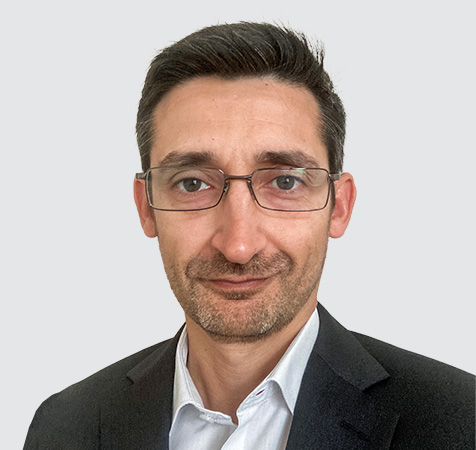
Dr. Fellous joined PMV Pharma in April 2022 as Vice President, Clinical Development and Medical Affairs. Prior to joining PMV Pharma, he was Global Medical Affairs Head on larotrectinib, the first tumor-agnostic drug approved in the U.S. and Europe, and selitrectinib programs at Bayer. He held increasing leadership roles at Bayer and Roche for more than 13 years, contributing to the strategy and launch of multiple successful oncology products. Dr. Fellous completed his doctorate in general medicine at the University Paris V along with a specialized master’s degree in medical management from ESCP-Europe Business School.
Tim Smith
Senior Vice President, Head of Corporate Development & Investor Relations

Prior to joining PMV Pharma, Mr. Smith was Chief Business Officer of Verseau Therapeutics. He has held senior business development leadership roles at IDEAYA Biosciences, Cleave Biosciences, and Celgene Corporation. Mr. Smith has led numerous M&A, in-licensing and strategic equity investment transactions.
He spent his early career in equity research covering the biotechnology sector at RBC Capital Markets, Lazard Capital Markets, and Citi Research. Mr. Smith holds a B.S. in biology from the University of Texas at Arlington, an MBA in finance from Fordham University and an M.A. in biotechnology from Columbia University.
Robert Ticktin
General Counsel & COO

Prior to joining PMV Pharma, Mr. Ticktin was Associate General Counsel, Corporate, at Tesaro, Inc., a development and commercial oncology company (acquired by GSK), where he led corporate legal matters, including SEC reporting, business development and alliance management support. Prior to Tesaro, he was Senior Vice President and General Counsel at Epirus Biopharmaceuticals, a biosimilar company. Before his tenure at Epirus, Mr. Ticktin spent 10 years at Amgen Inc., where he held various leadership positions in the legal department. He began his legal career in New York City at global law firms, Simpson Thacher & Bartlett LLP and Latham & Watkins LLP. Mr. Ticktin received a B.A. in Economics from The Ohio State University and a J.D. from Fordham University School of Law.
Binh Vu, Ph.D.
Senior Vice President, Drug Discovery and CMC

Dr. Vu joined PMV in 2013. As the company's first scientist, he played a pivotal role in shaping its research strategy and building essential capabilities. He led the discovery and chemical development efforts of rezatapopt, the first p53 Y220C reactivator undergoing human clinical trials.
Prior to joining PMV, Dr. Vu was a Research Leader at Roche Nutley. While at Roche, he made significant contributions to the discovery and advancement of Nutlins, small molecules that inhibit MDM2-p53 interaction.
Dr. Vu received a Ph.D. in Chemistry from the University of California, Los Angeles, and completed an NIH Postdoctoral Fellowship at the University of Texas at Austin. He received a B.S. in Chemistry from the University of California, Irvine.
Laura De Leon
Vice President, Head of Clinical Operations

Laura joined PMV in February 2019 as Head of Clinical Operations with nearly two decades of clinical operations experience in the pharmaceutical industry. Laura has worked in multiple therapeutic areas in all phases of development across company type: large pharma, biotech, medical device, and CRO.
Throughout her career, Laura has held positions of increasing responsibility and leadership in clinical operations and program management at PAREXEL International, Thoratec Corporation, CombinatoRx, Inc., Takeda Oncology, Syndax Pharmaceuticals, EMD Serono, and Seres Therapeutics. Prior to joining PMV, Laura was the Director of Clinical Operations at Seres, responsible for the clinical operations strategy, team management, and oversight of study deliverables for two microbiome therapeutic assets in development including the lead product candidate SER-109 in Clostridioides difficile infection. Laura has extensive monitoring and global trial management experience and has been at the forefront of precision medicine in oncology since joining PMV.
Laura holds a BA in Psychology from Boston College and a MS in Health Product Regulation and Health Policy from Regis College.
Arshad Haque, M.D.
Vice President, Drug Safety and Pharmacovigilance

Dr. Haque is a General Medicine physician with over 17 years of pharmaceutical industry experience. He held leadership roles across various phases of drug development and drug safety-pharmacovigilance within both large and small pharmaceutical companies, such as Wyeth, Pfizer, Abbott, Alexion, Baxalta/Shire and Insmed. His work encompassed successful IND, NDA, BLA, global approvals and launch with postmarketing continuation of therapies in Oncology, Endocrine, Inflammatory, Infectious Diseases and various Rare diseases. Dr. Haque received his medical degree at Burdwan University in West Bengal, India, and went on to receive postgraduate training in internal medicine, pediatrics, cardiology, intensive coronary care, and anesthesiology. Prior to joining the pharmaceutical industry, he also earned a Master of Public Health from West Virginia University in Morgantown, West Virginia and served as a Surveillance Medical Officer working for the World Health Organization.
Masha Poyurovsky, Ph.D.
Vice President, Biology
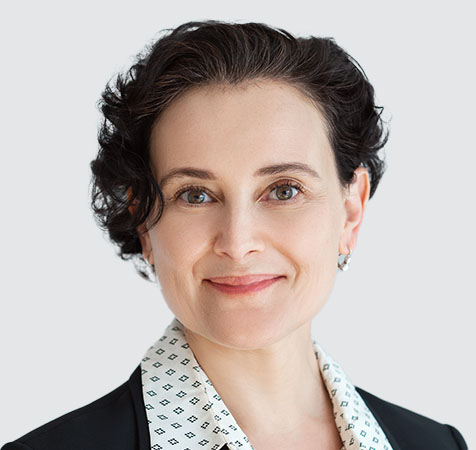
Masha Poyurovsky, Ph.D., recently joined PMV as Vice President of Biology. Dr. Poyurovsky has more than a decade of experience leading novel platforms and a track record of advancing therapies from concept to clinic. Prior to joining PMV, she was employed at Kadmon (acquired by Sanofi in 2021), most recently as Vice President, Discovery Biology.
Dr. Poyurovsky obtained a doctorate in biochemistry from Columbia University and a bachelor of science in biochemistry and biophysics from the University of Pittsburgh. During her time as a Research Scientist and a Postdoctoral Research Fellow at Columbia University, Dr. Poyurovsky conducted studies on p53 and Mdm2. She is the author and co-author of numerous publications and patents in the area of cancer biology and drug discovery.
Crystal Zuckerman
Vice President, Human Resources

Prior to joining PMV Pharma, Crystal was Director of Talent Management for Bristol Myers Squib, formerly Celgene. While at Celgene, she supported various functions and C-Suite executives as an HR Business Partner. She played an integral role in the rollout of initiatives and managed partnerships with several corporate functions with more than 400 employees.
Combined, Crystal has over 20 years of Human Resources expertise in the areas of recruiting, talent management, training, and leadership development. She received her undergraduate degree from Rutgers University and her MA in Human Resources & Corporate Communications from Seton Hall.
Shibu Sleeba
Vice President, Information Technology

Shibu joined PMV in December 2020 as Head of IT. He has been in the pharmaceutical industry for over 16 years and is in tune with the sector’s compliance, quality, and security values. He has a broad range of business and technical expertise gained while working for Purdue Pharma, Acorda Therapeutics, and Minaris Regenerative Medicine. Each is in a different therapeutic area with unique manufacturing nuances. His people skills have supported his ascension into management roles and the creation of solid vendor relationships. Shibu has a Bachelor of Engineering in Telecommunication Engineering from B.M.S. College of Engineering, Bengaluru.
Board of Directors
Richard A. Heyman, Ph.D.
Chair, Board of Directors and Member, Scientific Advisory Board

Richard A. Heyman, PhD, currently serves as Chairman and co-founder of Metacrine Inc., a biotech startup developing therapeutics for liver and gastrointestinal diseases. He also is the co-founder and Chairman of ORIC Pharmaceuticals, which is developing drugs to overcome resistance in cancer and serves as Chairman of Amunix Pharmaceuticals and Vividion Therapeutics. Previously, Rich was the co-founder and CEO of Aragon and Seragon Pharmaceuticals; which focused on therapeutics targeting hormone dependent cancers. J&J purchased Aragon in 2013 and Genentech purchased Seragon in 2014. He has been involved in the discovery and development of multiple therapeutic agents approved by the FDA, including the recently approved prostate cancer drug, Erleada.
Rich also serves on the BOD of Gritstone Oncology and Yumanity Therapeutics. In addition to his corporate experience, Rich is Vice Chair of the Board of Trustees at the Salk Institute, on the Board Foundation for the AACR and on the Board of Visitors at the UCSD Moores Cancer Center. He has won numerous awards including Ernst and Young San Diego Regional Entrepreneur of the Year and the Endocrine Society Outstanding Innovation Award. He was an NIH postdoctoral fellow and staff scientist at the Salk Institute. Rich received a PhD in pharmacology and a BS in chemistry and is the author or inventor on more than 125 publications and patents.
Arnold Levine, Ph.D.
Co-Founder & Member, Scientific Advisory Board

Arnold J. Levine is currently a Professor Emeritus at The Simons Center for Systems Biology at the Institute for Advanced Study in Princeton, and a joint Professor in the Pediatrics and Biochemistry Departments at the Cancer Institute of New Jersey. He received his B.A. in Biology from Harpur College, SUNY and his Ph.D. from the University of Pennsylvania.
He trained as a Postdoctoral Fellow at California Institute of Technology in the laboratory of Robert Sinsheimer. Dr. Levine is a widely acclaimed leader in cancer research. In 1979, Dr. Levine and others discovered the p53 tumor suppressor protein, a molecule that inhibits tumor development. He established the Simons Center for Systems Biology at the Institute for Advanced Study, which concentrates on research at the interface of molecular biology and the physical sciences: on genetics and genomics, polymorphisms and molecular aspects of evolution, signal transduction pathways and networks, stress responses, and pharmacogenomics in cancer biology. Dr. Levine helped shape U.S. science priorities as chairman of an influential 1996 review panel on federal AIDS research funding. He also chaired the National Cancer Advisory Board, which advises the National Academy of Sciences and its Institute of Medicine on cancer policy. He was elected to the National Academy of Sciences in 1991 and to its Institute of Medicine in 1995. In April 2001, Levine received the first Albany Medical Center Prize in Medicine and Biomedical Research, the largest annual prize in science or medicine offered in the United States. In 1968 Dr. Levine joined Princeton University as an Assistant Professor, becoming a Professor of biochemistry in 1976. In 1979, he moved to the SUNY Stony Brook School of Medicine to Chair the Department of Microbiology. He returned to Princeton in 1984. Between 1984 and 1996, he presided over a major expansion of Princeton’s life sciences programs as Chairman of the Department of Molecular Biology. From 1998 to 2002, Dr. Levine was President of The Rockefeller University.
David H. Mack, Ph.D.
Co-Founder, President & CEO

Prior to co-founding PMV Pharma with biologists Arnold Levine and Thomas Shenk, Dr. Mack was a general partner at Alta Partners from 2002 to 2013. His first investment was Angiosyn (acquired by Pfizer in 2005) where he was a director and CEO. Prior to Alta, Dr. Mack co-founded and served as Vice President of Genomics Research at Eos Biotechnology (acquired by Protein Design Labs in 2003).
From 1994 to 1997, he served at Affymetrix as Head of Cancer Biology where he oversaw the development and application of DNA array technology in the areas of oncology and inflammation. Dr. Mack was also a pivotal member of the Polymerase Chain Reaction (PCR) Invention Group at Cetus (now Novartis) in the mid 1980s. Dr. Mack has co-authored more than 30 scientific articles and reviews, including papers published in Cell, Science, and Nature, and is an inventor on 26 issued US patents. Dr. Mack was an American Cancer Society Postdoctoral Fellow in Microbiology and Immunology at Stanford University School of Medicine. He received his Ph.D. from the University of Chicago, where he was a Howard Hughes Fellow in Molecular Genetics and Cell Biology, and he received a B.A. in Molecular Biology from the University of California, Berkeley.
Dr. Mack has served on the Board of Directors of numerous biotechnology companies including Angiosyn, Aerie Pharmaceuticals (NASDAQ: AERI), Ceregene, Proacta Therapeutics, aTyr Pharmaceuticals (NASDAQ:LIFE), Pathwork Diagnostics, Silence Therapeutics (LON:SLN), Aduro Biotech (NASDAQ:ADRO), and Sutro Biopharma (NASDAQ:STRO). He currently serves on the Polsky Center Council for Entrepreneurship and Innovation, University of Chicago.
Laurie Stelzer
Chief Financial Officer, Kailera Therapeutics

Laurie Stelzer is Kailera’s Chief Financial Officer, bringing over 25 years of finance and strategic leadership experience in the biopharmaceutical industry. Prior to joining Kailera, she served as CFO of Orna Therapeutics, overseeing the company’s finance, investor relations, communications, IT, people and culture, and facilities and lab operations functions.
Before Orna, Laurie held CFO roles at ReNAgade Therapeutics, Mirati Therapeutics, and Arena Pharmaceuticals, where she played a pivotal role in the company’s growth, culminating in its $6.7 billion acquisition by Pfizer. Earlier in her career, Laurie served as CFO at Halozyme Therapeutics and also held senior leadership positions at Shire, including Senior Vice President of Finance, Division CFO for the Regenerative Medicine Division, and Head of Investor Relations. She began her biotech career at Amgen, where she spent 15 years in positions of increasing responsibility, holding multiple roles in finance, global commercial operations, treasury and international/emerging markets. She serves as a member of the board of directors of Sionna Therapeutics, PMV Pharmaceutical and Spyre Therapeutics.
Laurie received her B.S. in Accounting from Arizona State University and her M.B.A. from the Anderson School of Management at the University of California, Los Angeles.
Charles M Baum, M.D., Ph.D.
CEO, Terremoto

Dr. Baum is the CEO at Terremoto and has served on the board of directors since July 2023. Prior to becoming the CEO at Terremoto, Chuck was the Founder, President and Chief Executive Officer of Mirati Therapeutics, where he also served as a Board Member since 2012 through its recent acquisition by Bristol Meyers Squibb in 2024. He was Founder, President and Head of Research and Development at Mirati from 2021 to 2023 and was President, Founder and CEO from Nov 2012 to 2021.
Under his leadership, Mirati transformed into a precision oncology company focused on advancing drug discovery and research and delivering novel therapeutics that target the genetic drivers of cancer. Mirati discovered, developed and commercialized Krazati* (adagrasib) for the treatment of NSCLC patients with KRAS G12C mutations. Mirati also discovered a number of other novel, first in class or best in class inhibitors that target KRAS G12D, PRMT5, SOS1 and other critical oncology pathways.
Prior to his tenure at Mirati, Dr. Baum held positions of increasing responsibility in research and development at Pfizer from 2003 to 2012, where he was responsible for the development of several major drugs, including Inlyta®, Xalkori®, Ibrance® and Sutent®. While at Schering Plough he contributed to the development of Temodar® for the treatment of patients with glioblastoma.
Chuck’s career has also included academic and hospital positions at Stanford and Emory universities. He currently serves on the board of directors at Poseida Therapeutics, PMV Pharma, Acrivon Therapeutics, Odyssey Therapeutics and Crossbow Therapeutics. Chuck is also on the Scientific Advisory Board at ALX Oncology. Previously, he served as a member of the board of Array Biopharma from 2014 to 2019 when it was acquired by Pfizer, Inc., Immunomedics from 2019 to 2020 when it was acquired by Gilead, and BCTG Acquisition Corp from 2020 to 2021 when it merged with Tango Therapeutics.
Chuck received his M.D. and Ph.D. degrees from Washington University School of Medicine and completed his post-graduate training at Stanford University. Additionally, he has received research support from the National Institutes of Health and the American Cancer Society, published more than 50 peer-reviewed manuscripts and holds a number of patents and patent applications.
Kirsten Flowers
CEO and Co-Founder, Chiara Biosciences
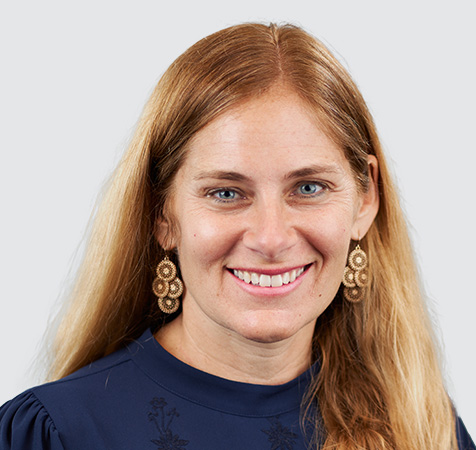
Kirsten Flowers has served as the Chief Executive Officer and co-founder of Chiara Biosciences, a platform and therapeutics company leveraging a differentiated approach to targeted protein degradation, since June 2024. Kirsten brings more than 25 years of pharmaceutical and biotech experience successfully leading corporate strategy, commercial and new product planning activities. She previously was the Chief Commercial and Strategy Officer for Kura Oncology from 2020 to 2023, and prior to that, Kirsten served as SVP of Commercial Operations at Array Biopharma where she built and led the commercial organization that delivered the successful launch of Braftovi® + Mektovi® for patients with BRAF-mutant melanoma. Before joining Array, she held several leadership positions within Pfizer including the U.S. commercial lead for the launch of the blockbuster drugs IBRANCE® in breast cancer and INLYTA® in renal cell carcinoma. Kirsten earned her MBA from Harvard Business School, and her BS in Molecular & Cellular Biology and Psychology from the University of Arizona.
Carol Gallagher, Pharm.D

Dr. Gallagher is a veteran board director. Over the last ten years she has served as a director at multiple public and private companies. In these roles, she has been involved in multiple IPOs and several successful M&A transactions. She currently serves as a director at Atara Biotherapeutics and until recently, Mirati Therapeutics (acquired by Bristol Myers Squibb in January, 2024) and Turning Point Therapeutics (acquired by Bristol Myers Squibb in August, 2022). From 1989 through 2011, she served in roles of increasing responsibility within Eli Lilly, Amgen, Agouron Pharmaceuticals, Pfizer, Idec Pharmaceuticals, CancerVax, and Anadys Pharmaceuticals. With over thirty years of biopharma industry experience, she brings commercial, business development, and drug development skills and expertise. From 2008-2011, she was CEO of Calistoga Pharmaceuticals where she led its successful acquisition by Gilead Sciences in 2011. For 2014 until 2023, she held Partner and Advisor roles in biopharma venture capital investing at New Enterprise Associates. She studied chemistry at Vanderbilt University and then pursued a clinical education earning both a bachelor of science and a doctor of pharmacy degree from the University of Kentucky College of Pharmacy.
Scientific & Clinical Advisory Boards
Scott Lowe, Ph.D.
Chair, Scientific Advisory Board

Dr. Lowe is a member of the Cancer Biology and Genetics Program at Memorial Sloan Kettering Cancer Center (MSKCC) and an Investigator in the Howard Hughes Medical Institute. He is also chair of the Geoffrey Beene Cancer Research Center at MSKCC. Dr. Lowe received his Bachelor’s Degree in Biochemistry from the University of Wisconsin-Madison and his Ph.D. in Biology from the Massachusetts Institute of Technology. He started his independent research at Cold Spring Harbor Laboratory, where he eventually became Director of the Cancer Center. He joined Memorial Sloan Kettering in 2011.
Dr. Lowe studies the genes and processes whose alterations cause and maintain cancer. Much of his work has focused on the tumor suppressor gene p53, where he has focused on how p53 acts to suppress tumorigenesis and the diverse consequences of p53 mutation on cancer progression. As examples, he has identified key roles for p53 in the processes of apoptosis (cell death) and senescence, and shown how p53 can suppress tumors through both cell intrinsic and extrinsic mechanisms. Conversely, he has shown how p53 inactivation can promote resistance to certain cytotoxic agents, and facilitate escape from immune surveillance. His work has been recognized by several awards, including the AACR Outstanding Investigator Award, the AACR Clowes Award, the Paul Marks Prize, and the Albert Knudsen award from the National Cancer Institute. He has also been elected as a Fellow in the Academy of the American Association of Cancer Research, the American Academy of Arts and Sciences, and the National Academy of Sciences.
Arnold Levine, Ph.D.
Co-Founder & Member, Scientific Advisory Board

Arnold J. Levine is currently a Professor Emeritus at The Simons Center for Systems Biology at the Institute for Advanced Study in Princeton, and a joint Professor in the Pediatrics and Biochemistry Departments at the Cancer Institute of New Jersey. He received his B.A. in Biology from Harpur College, SUNY and his Ph.D. from the University of Pennsylvania.
He trained as a Postdoctoral Fellow at California Institute of Technology in the laboratory of Robert Sinsheimer. Dr. Levine is a widely acclaimed leader in cancer research. In 1979, Dr. Levine and others discovered the p53 tumor suppressor protein, a molecule that inhibits tumor development. He established the Simons Center for Systems Biology at the Institute for Advanced Study, which concentrates on research at the interface of molecular biology and the physical sciences: on genetics and genomics, polymorphisms and molecular aspects of evolution, signal transduction pathways and networks, stress responses, and pharmacogenomics in cancer biology. Dr. Levine helped shape U.S. science priorities as chairman of an influential 1996 review panel on federal AIDS research funding. He also chaired the National Cancer Advisory Board, which advises the National Academy of Sciences and its Institute of Medicine on cancer policy. He was elected to the National Academy of Sciences in 1991 and to its Institute of Medicine in 1995. In April 2001, Levine received the first Albany Medical Center Prize in Medicine and Biomedical Research, the largest annual prize in science or medicine offered in the United States. In 1968 Dr. Levine joined Princeton University as an Assistant Professor, becoming a Professor of biochemistry in 1976. In 1979, he moved to the SUNY Stony Brook School of Medicine to Chair the Department of Microbiology. He returned to Princeton in 1984. Between 1984 and 1996, he presided over a major expansion of Princeton’s life sciences programs as Chairman of the Department of Molecular Biology. From 1998 to 2002, Dr. Levine was President of The Rockefeller University.
Guillermina (Gigi) Lozano, Ph.D.
Member, Scientific Advisory Board
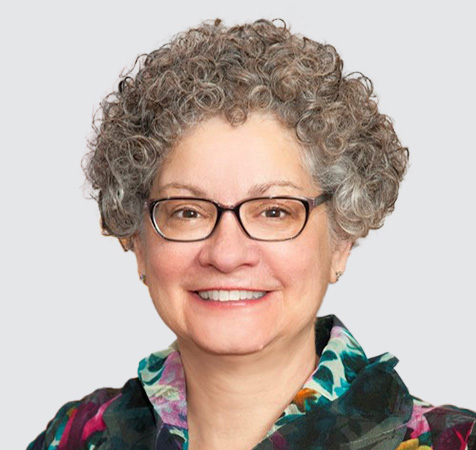
Dr. Lozano received her BS degree in Biology and Mathematics, Magna Cum Laude, from Pan American University now the University of Texas Rio Grande Valley. She received her PhD from Rutgers University and the University of Medicine and Dentistry of New Jersey, and performed post-doctoral studies with Dr. Arnold Levine at Princeton University.
Dr. Lozano was hired as an Instructor at The University of Texas MD Anderson Cancer Center in 1987 and quickly rose through the ranks to her current position as professor and chair of the Department of Genetics. She holds the Hubert L. Olive Stringer Distinguished Chair in Oncology in Honor of Sue Gribble Stringer.
Dr. Lozano's research is focused on understanding the activities of the p53 tumor suppressor and the upstream signals that regulate p53 function. Dr. Lozano used the mouse as a model system to demonstrate that Mdm2 and Mdm4 are critical inhibitors of p53, and identified gain-of-function mechanisms for p53 missense mutations which result in more aggressive cancers. Other models showed that cell cycle arrest and senescence (independent of apoptosis) were important p53 tumor suppressive mechanisms and explored the clinical implications of restoring p53 activity in different contexts in vivo.
Dr. Lozano is a member of the National Academy of Sciences, the National Academy of Medicine and the American Academy of Arts and Sciences. She received the Minorities in Cancer Research Jane Cooke Wright Lectureship and the Women in Cancer Research Charlotte Friend Lectureship awards, both from the American Association for Cancer Research. She also received the EE Just Award from the American Society of Cell Biology. She is also the recipient of distinguished alumni awards from both her undergraduate and graduate alma maters.
Richard A. Heyman, Ph.D.
Member, Scientific Advisory Board

Richard A. Heyman, PhD, is a scientist and entrepreneur with experience in building biotech and life science companies. He currently serves as Chairman and co-founder of Metacrine Inc., a biotech startup developing therapeutics for liver and gastrointestinal diseases. He also is the co-founder and Chairman of ORIC Pharmaceuticals, which is developing drugs to overcome resistance in cancer. Previously, Rich was the co-founder and CEO of Aragon and Seragon Pharmaceuticals, which focused on therapeutics targeting hormone dependent cancers. J&J purchased Aragon in 2013, and Genentech purchased Seragon in 2014. He has been involved in the discovery and development of multiple therapeutic agents approved by the FDA, including the recently approved prostate cancer drug Erleada.
Dr. Heyman is a Venture Partner for Arch Ventures and serves on the BOD of Gritstone Oncology, Yumanity Therapeutics and Vividion Therapeutics. Rich is Vice Chair of the Board of Trustees at the Salk Institute, on the Board Foundation for the AACR and on the Executive Committee at the UCSD Moores Cancer Center. He has won numerous awards including Ernst and Young San Diego Regional Entrepreneur of the Year and the Endocrine Society Outstanding Innovation Award. He was an NIH postdoctoral fellow and staff scientist at the Salk Institute. Rich received a PhD in pharmacology and a BS in chemistry and is the author or inventor on more than 125 publications and patents.
Charles M Baum, M.D., Ph.D.
Chair, Clinical Advisory Board

Dr. Baum is the CEO at Terremoto and has served on the board of directors since July 2023. Prior to becoming the CEO at Terremoto, Chuck was the Founder, President and Chief Executive Officer of Mirati Therapeutics, where he also served as a Board Member since 2012 through its recent acquisition by Bristol Meyers Squibb in 2024. He was Founder, President and Head of Research and Development at Mirati from 2021 to 2023 and was President, Founder and CEO from Nov 2012 to 2021.
Under his leadership, Mirati transformed into a precision oncology company focused on advancing drug discovery and research and delivering novel therapeutics that target the genetic drivers of cancer. Mirati discovered, developed and commercialized Krazati* (adagrasib) for the treatment of NSCLC patients with KRAS G12C mutations. Mirati also discovered a number of other novel, first in class or best in class inhibitors that target KRAS G12D, PRMT5, SOS1 and other critical oncology pathways.
Prior to his tenure at Mirati, Dr. Baum held positions of increasing responsibility in research and development at Pfizer from 2003 to 2012, where he was responsible for the development of several major drugs, including Inlyta®, Xalkori®, Ibrance® and Sutent®. While at Schering Plough he contributed to the development of Temodar® for the treatment of patients with glioblastoma.
Chuck’s career has also included academic and hospital positions at Stanford and Emory universities. He currently serves on the board of directors at Poseida Therapeutics, PMV Pharma, Acrivon Therapeutics, Odyssey Therapeutics and Crossbow Therapeutics. Chuck is also on the Scientific Advisory Board at ALX Oncology. Previously, he served as a member of the board of Array Biopharma from 2014 to 2019 when it was acquired by Pfizer, Inc., Immunomedics from 2019 to 2020 when it was acquired by Gilead, and BCTG Acquisition Corp from 2020 to 2021 when it merged with Tango Therapeutics.
Chuck received his M.D. and Ph.D. degrees from Washington University School of Medicine and completed his post-graduate training at Stanford University. Additionally, he has received research support from the National Institutes of Health and the American Cancer Society, published more than 50 peer-reviewed manuscripts and holds a number of patents and patent applications.
Charles Sawyers, M.D.
Member, Clinical Advisory Board

Dr. Sawyers is chair of the Human Oncology and Pathogenesis Program at Memorial Sloan Kettering Cancer Center, and is an investigator at the Howard Hughes Medical Institute. He was appointed to US President Barack Obama’s National Cancer Advisory Board, and is former president of the American Association for Cancer Research and of the American Society for Clinical Investigation. He is also a member of the US National Academy of Sciences, the Institute of Medicine, and the co-founder of Aragon (acquired by J&J in 2013) and Seragon (acquired by Genentech in 2014).
Dr. Sawyers received his doctor of medicine from the Johns Hopkins University School of Medicine, and worked at the Jonsson Comprehensive Cancer Center at the University of California, Los Angeles for nearly 18 years before joining Memorial Sloan Kettering in 2006. An internationally acclaimed cancer researcher, he co-developed the tyrosine kinase inhibitor Gleevec (imatinib mesylate) and the anti-androgen drug Xtandi (enzalutamide). He has received numerous honors and awards, including the Lasker-DeBakey Clinical Medical Research Award in 2009.
Michael E. Jung, Ph.D.
General Advisor Board
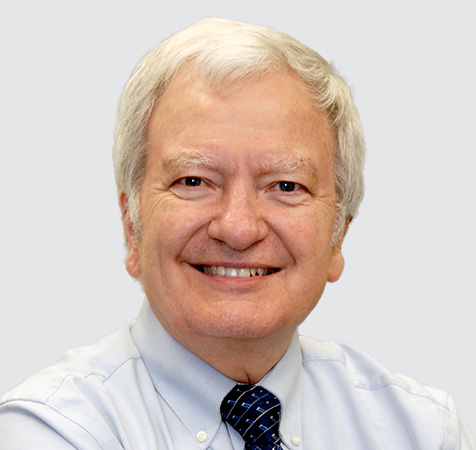
Michael E. Jung is currently a Distinguished Professor of Chemistry and Biochemistry at the University of California, Los Angeles (UCLA). He is also an Adjunct Member of the Department of Medical and Molecular Pharmacology. He is a member of the Molecular Biology Institute and the California Nanosystems Institute. He serves as the funding director of the Biosciences Synthetic Chemistry Core Facility at UCLA. He received his B.A. in Chemistry from Rice University and his Ph.D. from Columbia University.
He trained as a Postdoctoral Fellow at the Eidgenössische Technische Hochschule (ETH) in Zürich in the laboratory of Albert Eschenmoser. In 1974 Dr. Jung joined the faculty at UCLA as an Assistant Professor in the Department of Chemistry and Biochemistry, becoming a Professor in 1983. He is a widely acclaimed leader in synthetic medicinal chemistry and drug discovery. Beginning in 2003, he teamed with Professor Charles Sawyers at UCLA on a joint project to design and prepare new antagonists of the androgen receptor which still functioned under the high AR expression found in castration resistant prostate cancer (CRPC). This led to the discovery of novel AR antagonists and culminated in the approval of one of his analogues, RD162’ - enzalutamide, as a first line treatment for CRPC in 2012. A different AR antagonist, ARN509, is now in phase 3 clinical trials for pre-metastatic CRPC, sponsored by Johnson and Johnson. He has been a founder of six biotech startups and has more than 15 ongoing collaborations with MDs and biologists at UCLA and elsewhere. He serves on the Board of Directors or the Scientific Advisory Board of five companies. He consult currently for 25 pharmaceutical firms and biotech companies. Recently he and his wife established the Jung Chair in Medicinal Chemistry and Drug Discovery at UCLA.

